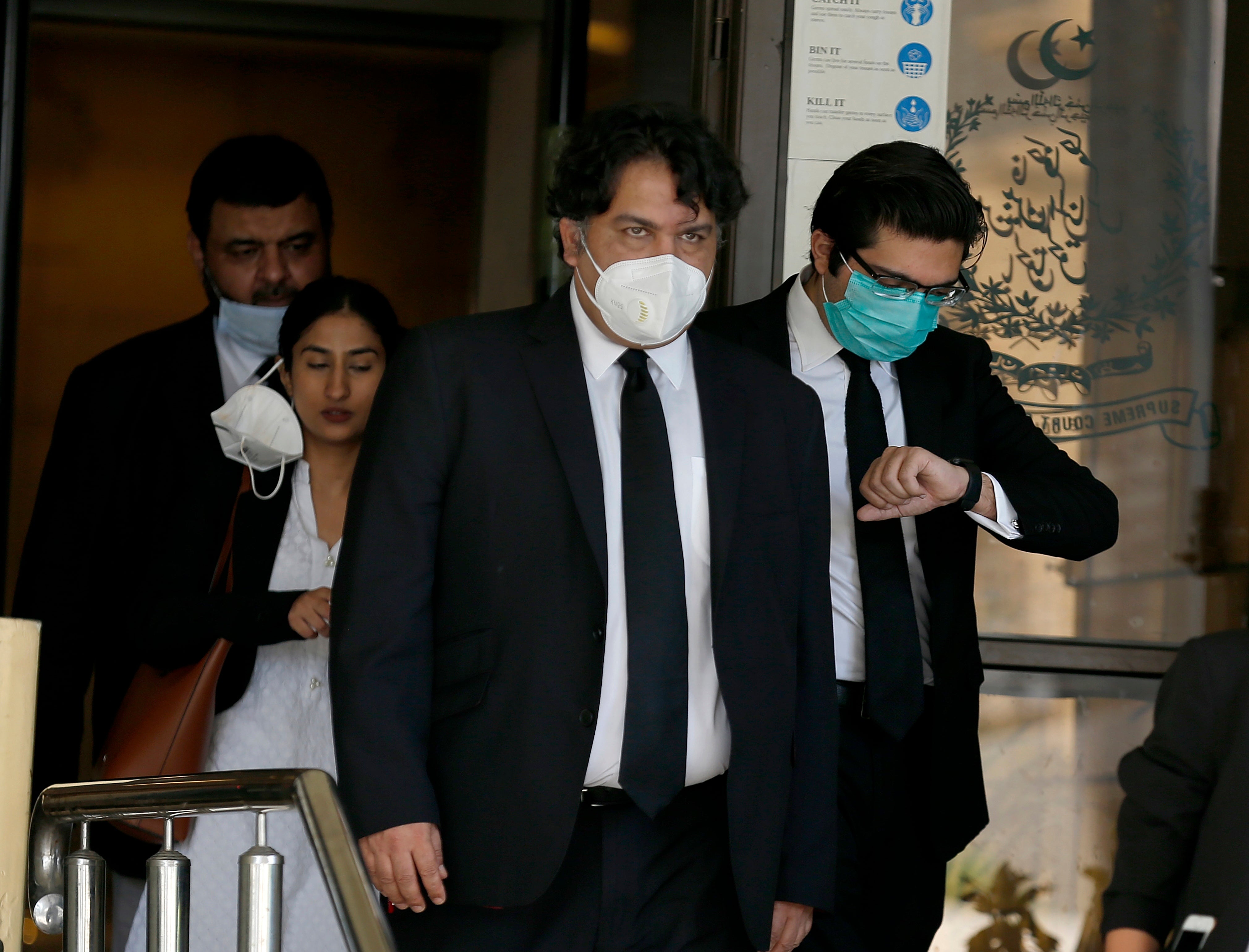Pakistan's top court hears appeal from Daniel Pearl suspect
Pakistan’s Supreme Court is to hear an appeal by the family of slain American journalist Daniel Pearl that challenges the acquittal of a British-born Pakistani in the gruesome 2002 beheading of the Wall Street Journal reporter

Pakistan’s Supreme Court is to hear an appeal Monday by the family of slain American journalist Daniel Pearl that challenges the acquittal of a British-born Pakistani in the gruesome 2002 beheading of the Wall Street Journal reporter.
The family's appeal was adjourned earlier this month amid cries of outrage from Pearl’s family and the U.S. government to a lower court’s acquittal of Ahmed Omar Saeed Sheikh, who had been on death row since his conviction in 2002. Sheikh has remained in custody since his acquittal under a Pakistani law allowing his remand in custody fearing his release would endanger public safety.
A handwritten letter by Sheikh told of his involvement in Pearl’s horrific death in the southern port city of Karachi, Faisal Siddiqi, lawyer for Pearl's family, told The Associated Press in a telephone interview late Sunday.
Pearl, 38, was kidnapped and killed while investigating the link between Pakistani militants and Richard C. Reid, dubbed the “shoe bomber” after trying to blow up a flight from Paris to Miami with explosives hidden in his shoes. Pearl disappeared on Jan. 23, 2002, and a videotape received by U.S. diplomats in February 2002 confirmed his death.
The letter by Sheikh was entered into evidence in late 2019, said Siddiqi but it was not among the evidence heard by the lower court that in April acquitted Sheikh on a number of charges, including the most grievous of kidnapping for ransom leading to the murder of Pearl.
In the letter dated July 19, 2019, Sheikh said his involvement in Pearl's death was “a relatively minor one.” Siddiqi said Sheikh implicates himself in Pearl's murder by his admission.
The acquittal prompted outrage from the U.S. administration as well as journalists' organizations.
In the original trial in 2002, emails between Sheikh and Pearl were entered into evidence in which Sheikh gained Pearl's confidence sharing their experiences as both waited for the birth of their first child. Pearl's wife Marianne Pearl gave birth to a son, Adam, in May 2002.
Evidence entered into court accused Sheikh of luring Pearl to his death, giving the American journalist a false sense of security as he promised to introduce him to a cleric with militant links.
For several weeks Pakistani police sought to locate Pearl until the video received by U.S. diplomats showed the beheading.
An investigation by students of Georgetown University in Washington implicated Khalid Sheikh Mohammad, the alleged mastermind of the 9/11 terrorist attacks in the United States in Pearl's death. Mohammad has been in U.S. custody on Guantanamo Bay since his arrest in Pakistan in March 2003.
Bookmark popover
Removed from bookmarks